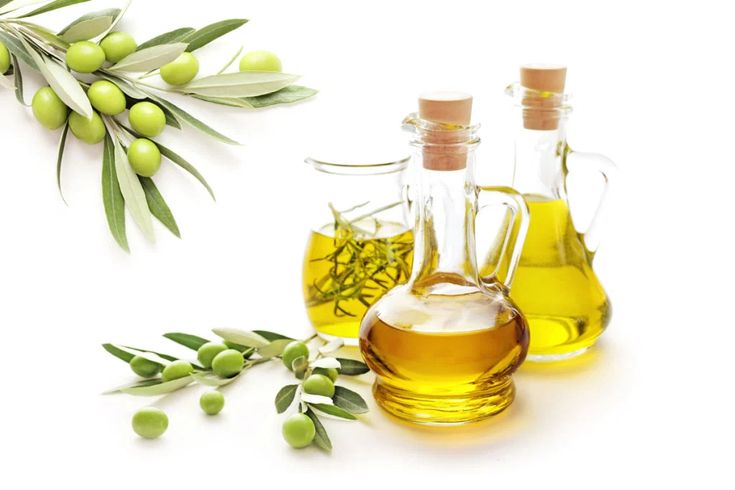Categories
The latest content
-

Customs Clearance & Import Regulations for Bulk Iranian Pinto Beans in EU, Middle East & Africa
..
-

Quality Control & Laboratory Testing Standards for Iranian Pinto Beans
..
-

Logistics & Shipping Solutions for Bulk Iranian Pinto Bean Exports
..
-

Minimum Order Quantity (MOQ) & Bulk Pricing for Iranian Pinto Bean Buyers
..

Tags
Quality Control & Laboratory Testing Standards in Iranian Olive Oil Export; Ensuring Purity, Safety & Global Compliance

When importing bulk Iranian olive oil, international buyers expect more than just competitive pricing — they demand quality, consistency, safety, and compliance with global food regulations. This is where quality control protocols and laboratory testing standards play a crucial role.
Iran, with its growing olive oil industry, has invested in modern laboratories, strict food safety regulations, and international certifications to ensure that its olive oil exports meet the highest global benchmarks. At Tamila Agrifood Company, we take these standards seriously, ensuring that our buyers receive authentic, safe, and premium-grade olive oils that can be trusted in any market.
1. Importance of Quality Control in Olive Oil Export
Quality control ensures that each shipment of Iranian olive oil:
• Meets ISO, HACCP, and Codex Alimentarius standards.
• Complies with EU, FDA, and Middle Eastern import regulations.
• Maintains consistent flavor, aroma, and nutritional properties.
• Prevents adulteration, contamination, and fraud.
• Guarantees long shelf-life during global logistics.
Without strict quality control, olive oil may lose its value and authenticity in competitive international markets.
2. Key Laboratory Testing Parameters in Iranian Olive Oil
a) Chemical Analysis
• Acidity Level (FFA): Extra Virgin must be below 0.8%.
• Peroxide Value: Measures oxidation and freshness.
• UV Absorption (K232, K270): Detects oxidation and rancidity.
• Sterol & Fatty Acid Profile: Confirms authenticity and purity.
b) Sensory Evaluation (Organoleptic Testing)
• Conducted by expert tasting panels.
• Evaluates fruitiness, bitterness, pungency, and absence of defects.
c) Residue & Contaminant Testing
• Pesticide Residues: Ensures compliance with EU and Codex MRLs.
• Heavy Metals & Microbiological Testing: Ensures food safety for global distribution.
d) Adulteration Detection
Advanced chromatography and spectroscopy methods identify blending with cheaper oils like sunflower or soybean oil.
3. Certifications for Iranian Olive Oil Exports
To build trust with wholesale buyers, Iranian exporters provide internationally recognized certifications:
• ISO 22000 / HACCP: Food safety management systems.
• Organic Certification (EU, USDA, JAS): For premium EVOO exports.
• Halal Certification: For Middle Eastern and Islamic markets.
• Non-GMO Certification: To meet global clean-label demand.
These certifications help olive oil exporters access high-value markets in the EU, GCC, North America, and Asia.
4. Role of Independent Third-Party Labs
Reputable Iranian exporters like Tamila Agrifood Company collaborate with third-party accredited laboratories for independent verification. This ensures:
• Neutral and unbiased test results.
• Compliance with importing country regulations.
• Full transparency for international buyers.
5. Packaging, Storage & Cold-Chain Quality Assurance
Quality control does not stop at production. It continues with:
• Food-grade packaging in glass bottles, tin cans, PET, drums, and flexi-tanks.
• Cold-chain storage & shipping for extra virgin olive oil to preserve antioxidants and flavor.
• Batch traceability systems to track each export lot back to its origin.
6. Why Buyers Trust Iranian Olive Oil Exports?
• Authenticity: Laboratory testing proves purity and natural origin.
• Safety: Compliance with international standards reduces import rejection risk.
• Consistency: Controlled processes ensure repeat orders have the same quality.
• Transparency: Full documentation and test reports provided with every shipment.
Conclusion
In today’s competitive food export market, quality control and laboratory testing standards are essential for building buyer trust and securing long-term trade relationships. By implementing strict chemical, sensory, and safety testing protocols, Iranian olive oil exporters guarantee that their products are not only premium in taste but also compliant with international regulations.
At Tamila Agrifood Company, we combine scientific testing, ISO/HACCP certifications, and transparent documentation to deliver olive oil that meets the expectations of embassies, government tenders, HORECA sectors, and global distributors. With us, importers can be confident in receiving authentic, safe, and sustainable Iranian olive oil, every time.
Email: tamilaagrifood@gmail.com
Call / WhatsApp: +989141858935



